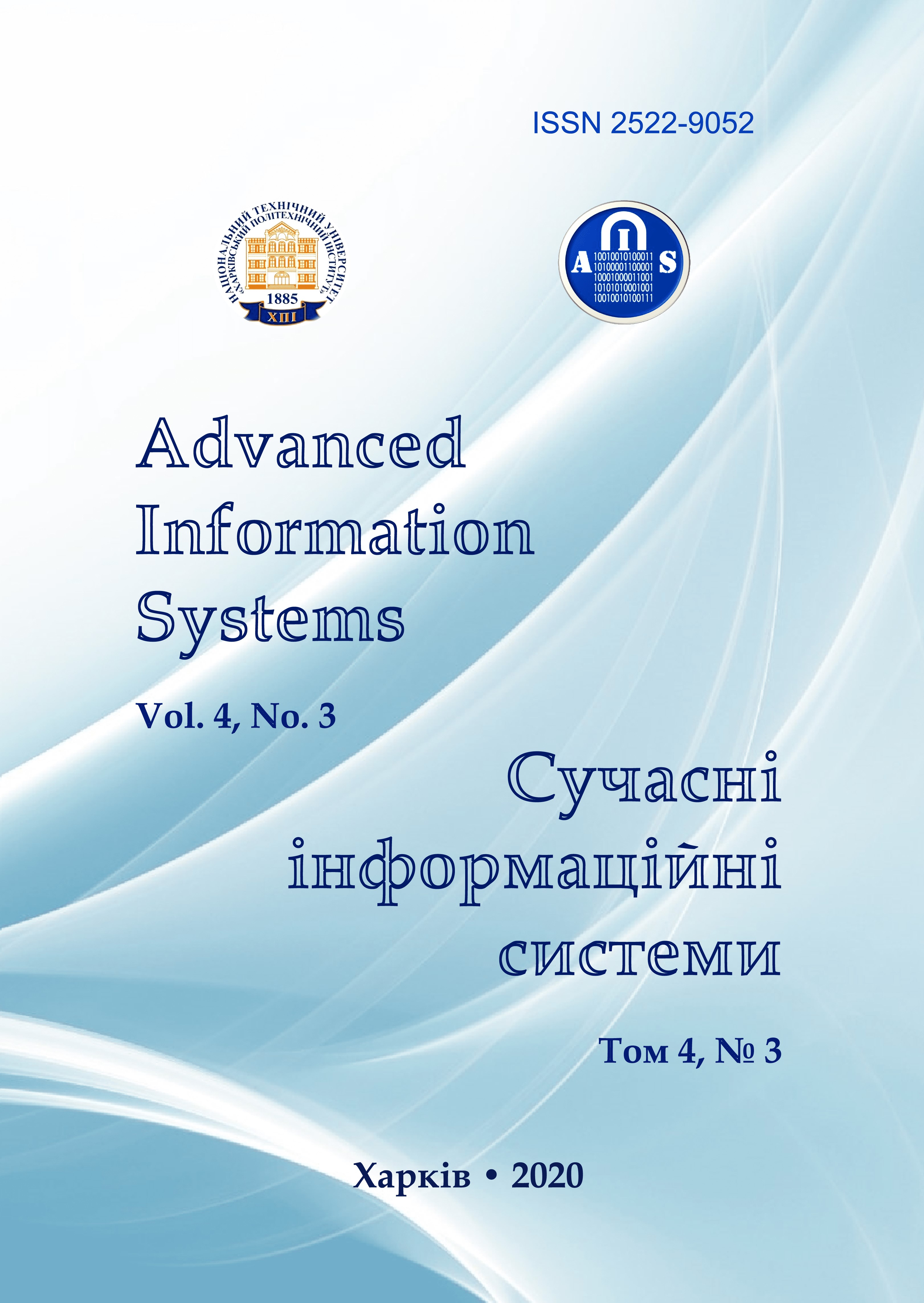APPLICATION PROBABILISTIC ECONOMIC MATHEMATICAL MODELS FOR OPTIMIZATION PLANNING OF AN IRREDUCIBLE STOCK AND IMPROVING THE EFFICIENCY OF LOGISTICS SUPPLY MANAGEMENT OF THE STATE DEFENCE FORCES WITHOUT REDUSING THE LEVEL OF RELIABILITY
Main Article Content
Abstract
The subject matter of the article is the logistical support of the state defence forces. The goal of the study is the development of a probabilistic economic and mathematical model of logistics supply management for planning a non-reducing stock of the state defence forces logistics supply. The tasks to be solved are: to formulate the task of determining the irreducible (reserve) of logistics supply stock size, to provide that the maximum possible value of its probability exhaustion within a certain period will not exceed the limiting value in terms of Wilson economic and mathematical model; by statistical processing of the state defence forces actions observation performing their assigned tasks to present the task of determining the optimal non-reducing stock by type of logistics cost without to reducing the level of reliability as a task to test multi-alternative statistical hypotheses; on the basis of solving the problem of continuous linear programming to determine the optimal non-reducible stock according to the nature of expenditures in order to improve the logistics supply management of the state defence forces. General scientific and special methods of scientific knowledge are used. The following results were obtained: Loses of the logistics supply stocks the defense state forces performing their assigned tasks within a certain period of time as a normally distributed random variable with a mathematical expectation and standard deviation calculated from the results of statistical data processing. The problem of determining the optimal irreducible stock by types of loses of the logistics supply without reducing the level of reliability is formulated as a problem of multi-alternative statistical hypotheses testing and solved as a problem of continuous linear programming. Conclusions. It was determined the size of the non-reducing (reserve) stock of logistics supply of state defense units when performing their assigned tasks, provided that the maximum possible value of the probability of its exhaustion during a certain period does not exceed the limit value should be formulated in terms of Wilson economic-mathematical model. The assumption that the expenditure of the logistics supply stocks means when performing the assigned tasks by the state defense forces is a random variable subject to the normal distribution law make it possible to use the well-known theory of probability apparatus and many-alternative statistical hypotheses testing and make calculations based on the existing statistical sampling data. Statistical processing of data obtained during state defense forces preforming assigned tasks allows you to obtain initial data and calculate the predicted optimal probabilities of the logistics supply loses distribution in accordance with current, average, overhaul and irrecoverable losses.
Article Details
References
Pavlovsky, O.V. (2015), “Forecasting the amount of losses of weapons and military equipment during operations (combat operations)”, Systemy ozbroyennya i viysʹkova tekhnika, no. 4(44), pp. 116-118.
Moskovchenko, V.M. (2001), Ekonomicheskoye obosnovaniye sozdaniya yedinoy sistemy material'nogo obespecheniya silovykh struktur gosudarstva na osnove logisticheskogo podkhoda: monografiya [Economic substantiation of the creation of a unified system of material support for the power structures of the state on the basis of a logistic approach: monograph], Publishing house of St. Petersburg State University of Economics, St. Petersburg, RU.
Biletov, V.I. (2010), “The problem of building a unified system of logistical support of military formations of Ukraine”, Trudy Nat. University of Defense of Ukraine, vol. 4(91), pp. 81-89.
Sysoev, V.V (2015), “The concept of modeling the logistics management of the supply of forces of the security and defense sector of the state”, Problems of the economy, vol. 3, pp. 342-251, available at:
http://nbuv.gov.ua/UJRN/Pekon_2015_3_47.
Pastukhova, V.V. (2008), Stratehichne upravlinnya pidpryyemstvom: filosofiya, polityka, efektyvnistʹ [Strategic management of the enterprise: philosophy, policy, efficiency], KNEU, Kyiv, UA.
Bondarenko, O.S. (2009), “Modern models of inventory management”, Economy and state, no 3, pp. 16-22.
Sterligova, A.N. and Semyonova, I.V. (2005), “Optimal Order Size or Wilson's Mysterious Formula”, Logistic & system, No. 2, 3, pp. 64-69, 62-71.
Venttsel, Ye.S. (1969), Probability Theory, A Textbook, Nauka, Fizmatgiz, Moscow, SU.
Venttsel, Ye.S. (1972), Operations Research, Sov. Radio, Moscow, SU.
Raskin, L.G. and Kirichenko, I.O. (1987), Mathematical Foundations of Operations Research and Analysis of Complex Air Defense Weapon Systems, VIRTA, Kharkiv, UA.
Kirichenko, I. O. and Makogon, Ye.A. (1999), “The problem of testing statistical hypotheses as a linear programming problem”, Trudy akademiyi, NAOU, Kyiv, UA.
Shvachych, H.H. (2000), Liniyna alhebra v rozrakhunkakh seredovyshcha Mathcad: Pidruchnyk [Linear algebra in Mathcad calculations: Textbook], DAUBP, Dnipropetrovsʹk, UA.
